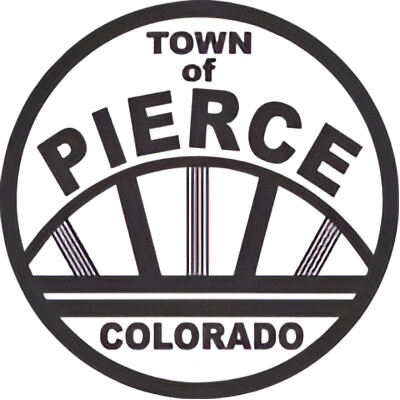In 1869 The Denver Pacific Railroad started laying tracks to Cheyenne to connect Denver with the Union Pacific Railroad. On November 8, 1869, a side track was laid and was named "Pierce" after General John Pierce, U.S.A., President of the Denver Pacific Railroad. John Pierce was formerly a General of the Union Army. A well was dug at the Pierce siding for water for steam locomotives. Also, a boxcar beside the track became the first building in Pierce. The next building was a house for the track foreman's family. The first Postmaster was Richard Sullivan in 1903. In 1907 the Post Office was moved from the depot on the east side of town to where the Senior Center is now. "Pierce" was formally established as a community in 1918. The first Mayor was J.F. Munger. The Pierce Newpaper was called the "Pierce Leader" and was also established in 1918. The Pierce Hotel was located where the Post Office is now. Trains were important to the people of Pierce. The government gave land grants and the people had to build something to live in and work the ground in order to be able to keep the land. The trains were important for getting peoples' products to the town that would buy them. The trains also helped people get to other towns that were farther away.
Some of the early comers to Pierce were the Snow family, Jay Jones and his sister Jessie. When people first moved here there were no trees just prairie. They made sod houses or went to the mountains to get wood for log houses. They had to carry all their water from wells. Irrigation was very important to these farmers so ditches were built to carry water from the mountains.
There have been many blizzards in our area over the years. After a blizzard in 1913, the farmers wanted to clear the roads. They made a large "U" of wood and hooked up 10 head of horses to clear the roads every day. In 1949 it snowed nonstop and the wind blew for three days. The wind blew snow through cracks into people's attics and into the sheds where cattle were smothered to death. Even the trains were snowed in.
















